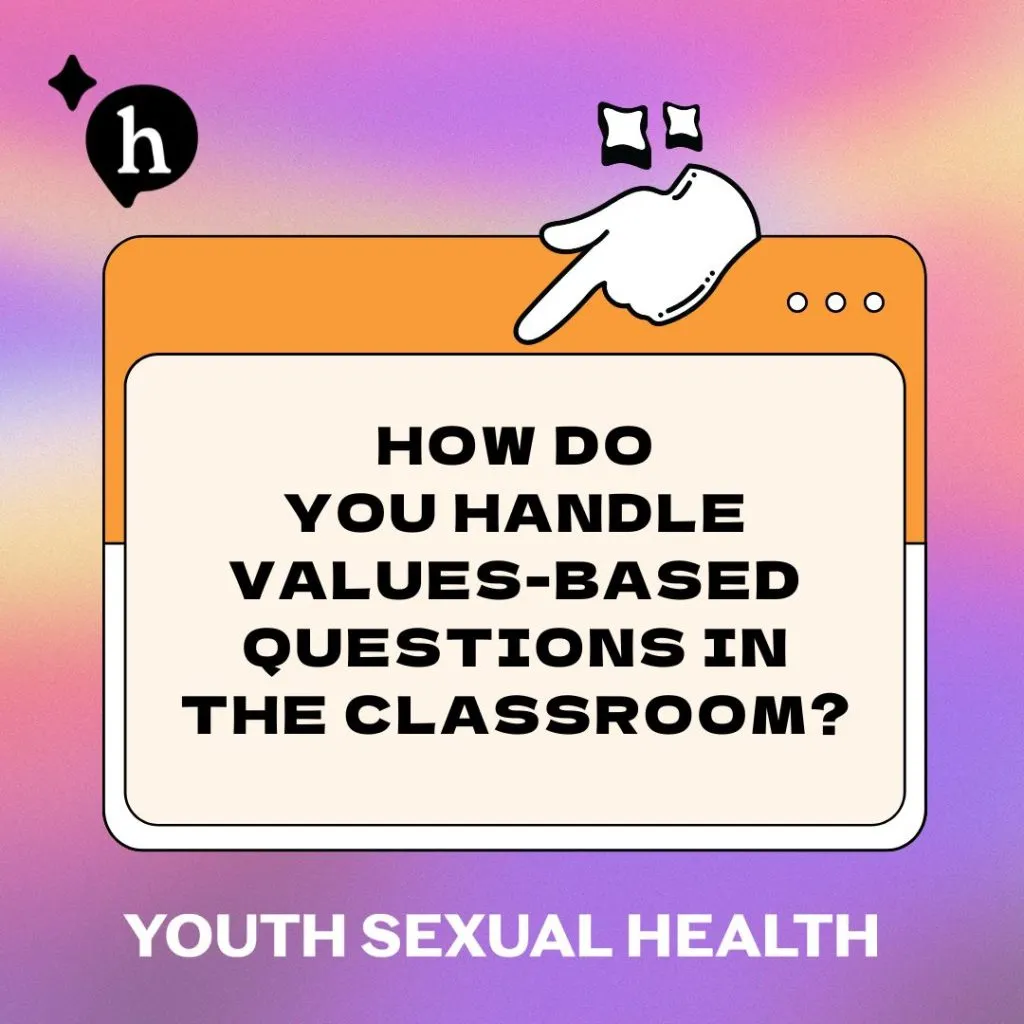How do Oklahoma sex educators handle values-based questions in the classroom?
Carefully. Very carefully.
When sexual health educators teach in the classroom, there are always going to be values-based questions from students. Examples of values-based questions include:
- Is it bad to have sex before you are 18?
- Will my future husband be upset if I have sex before him?
- Can you have sex with lots of people if you aren’t exclusive?
While everyone may have their own opinions about the “correct” answer to these questions, and parents of young people may have specific ideas about how to answer them for their own children, the truth is… there is no right or wrong answer to a values-based question. And that’s because values can vary from person to person. Answers to these questions could be personal, they might be biased, and they are often based on individual experience.
So how do sexual health educators answer these questions?
Educators can’t just ignore these questions. And while the ideal answer is to suggest a young person go talk to a trusted adult, that may not be an option for a young person who has a limited number of trusted adults present in their lives. Additionally, these young people trust the teacher with this question and they are seeking knowledge, so they deserve a thoughtful answer.
However, sharing personal beliefs would be unethical for an educator. Teachers, especially sex ed teachers, are supposed to provide medically accurate, age-appropriate, and unbiased information. Personal ideas of what is right or wrong have no place in the classroom. This is what makes values-based questions so difficult.
Guidance is good, bias is bad
As mentioned, biased answers have no place in the classroom. And we’ll reiterate another point from earlier, there are no correct or incorrect answers for values-based questions. The sexual health educator presented with these questions must be careful to provide guidance on navigating values and help that teenager consider their values outside of sex to make the best decision for themselves.
A young person making a healthy decision for themselves? Yes, we think it’s possible. In fact we KNOW it’s possible because young people do it all the time. Teens can make healthy decisions for themselves, and the best decisions are often ones made by someone who confidently understands, believes and upholds their personal values.
So let’s consider how the well-trained educator might answer those questions from earlier…
Is it bad to have sex before you are 18?
Educator answer: Whenever someone chooses to have sex is a personal decision, whether it’s the first time or not. It’s important for them to consider the potential outcomes so they can make a safe choice. To figure out what the safe options are, they would want to consider what both they and their partner want from the experience.
Will my future husband be upset if I have sex before him?
Educator answer: Some people choose to have sex before marriage or wait until they are married. There is no one “right” way to do it, but if waiting until marriage is important to someone, or they believe it may be important to their future spouse, that is something to consider when making sexual decisions. Ideally, partners could talk about their past openly and with mutual respect. Honest communication is a sign of a healthy relationship.
Can you have sex with lots of people if you aren’t exclusive?
Educator answer: This is entirely up to the individual, but they would want to consider how safe their actions are if there is a potential for unintended consequences like STIs or pregnancy. It’s also important to keep a partner’s safety in mind when making these decisions since our own sexual decisions can impact a sexual partner.
Are these answers perfect? Probably not. There are always ways we can adjust answers to make our responses more inclusive or more accepting of different values, and we may have to make adjustments according to the age of the youth who asked it. Sexual decision-making can feel like a grey area to a young person whose brain thinks mostly in black and white.
But that’s what sex ed teachers are for! To help a young person navigate adolescent development and complex decision-making, by offering the best possible, unbiased, information. We are grateful for all the amazing educators in the Oklahoma Health Education Network and look forward to seeing their success in 2025 and beyond.

